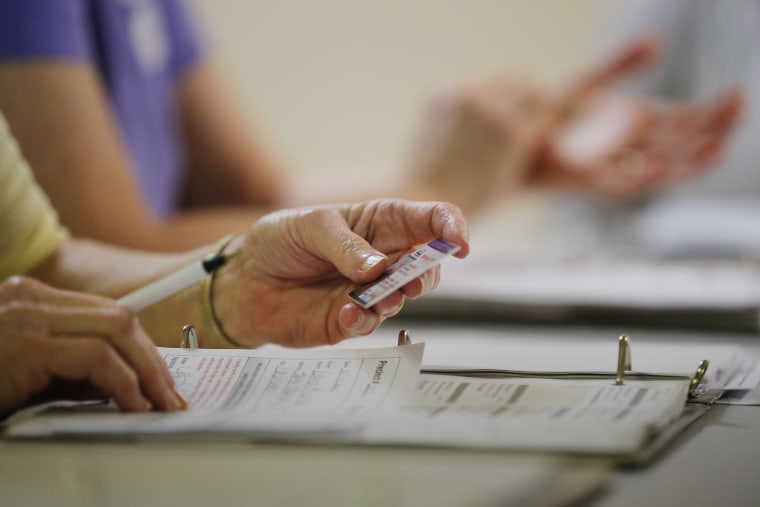It's not exactly a secret that many Republican officials have pushed voting restrictions in recent years as part of a sustained partisan campaign. The most common voter-suppression tactic, of course, are voter-ID laws.
To hear proponents tell it, these measures are simply intended to prevent fraud, and are completely unrelated to helping one party's candidates over another. Once in a while, though, someone will slip up and offer some accidental candor. Mother Jones' Ari Berman reported yesterday afternoon:
Election officials and Democrats in Wisconsin have repeatedly argued that the state's strict voter ID law allowed Donald Trump to win the state in 2016 by keeping thousands of voters -- predominantly in Democratic-leaning areas -- from the polls. Now a top Republican official in the state is saying the same thing."We battled to get voter ID on the ballot for the November '16 election," Wisconsin Attorney General Brad Schimel, who defended the law in court, told conservative radio host Vicki McKenna on April 12. "How many of your listeners really honestly are sure that Sen. [Ron] Johnson was going to win re-election or President Trump was going to win Wisconsin if we didn't have voter ID to keep Wisconsin's elections clean and honest and have integrity?"
To the extent that reality matters, there was nothing wrong with Wisconsin's elections before Republicans imposed their voter-ID law on the state. The "problem" GOP lawmakers set out to "fix" didn't exist.
And with this in mind, there's no reason to accept that part of Brad Schimel's boast at face value. The state's voter-suppression measure didn't keep Wisconsin's elections any more "clean and honest" than they otherwise would've been, but they did help keep tens of thousands of voters in traditionally Democratic areas from participating in the 2016 election -- a cycle where Donald Trump won the state by 22,000 votes, becoming the first Republican presidential candidate in more than three decades to win Wisconsin.
What's more interesting, of course, is the state attorney general's willingness to connect the voter-ID law with the partisan outcome he wanted to see. This doesn't happen often, but it's not unprecedented, either.
Two years ago, for example, Rep. Glenn Grothman (R-Wis.) admitted in a television interview that voter-ID laws will “make a little bit of a difference” in boosting Republicans in the 2016 elections. The same month, former Sen. Jim DeMint (R-S.C.) bragged that voter ID laws help elect “more conservative candidates.”
What’s more, back in June 2012, a Republican leader in the Pennsylvania legislature boasted that a voter-ID law was “gonna allow Governor Romney to win the state of Pennsylvania.” (Barack Obama won Pennsylvania twice.)
The next time someone makes the case voter-suppression tactics have nothing to do with a partisan agenda, keep these examples in mind.
